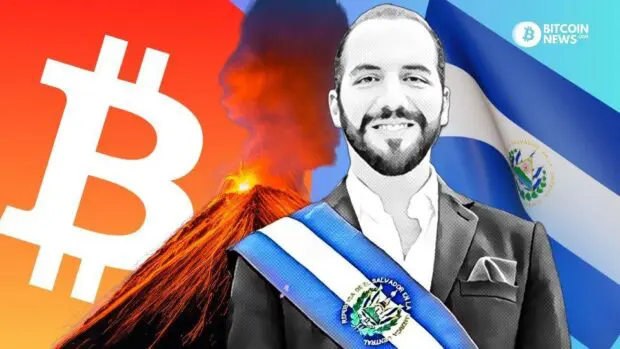On 11 January 2023, El Salvador passed LIDA — the “Law of Issuance of Digital Assets” — that brought President Nayib Bukele’s dream of Volcano Bonds closer to reality. Now in April, Bitfinex has been granted the first Digital Asset license, allowing them to act as an issuer and service provider for the country’s digital assets, including the innovative “Volcano Bond.”
What is LIDA?
LIDA, the Law of Issuance of Digital Assets, establishes the legal and regulatory framework for issuing digital assets other than bitcoin. The new legislation covers tokenized securities, altcoins, and businesses that deal with these assets.
Alongside establishing this regulatory framework comes a number of benefits for individuals and institutions involved in the digital asset industry:
- Yields and income from digital assets will be exempt from levies, duties, taxes, rates, and contributions (capital gains and normal income not taxed).
- Issuers, certifiers, and registered digital asset service providers are exempt from VAT, income tax, municipal taxes, or any other tax, regardless of their nature.
- In the case of legal entities, the tax benefits will apply to the partners and shareholders individually considered, with respect to profits or dividends from the aforementioned activities.
The aim of this legislation is to increase financial and technological innovation, as El Salvador aims to become the crypto hub of Latin America.
The bill also establishes a National Commission for Digital Assets. This regulatory body is responsible for issuers, service providers, and participants involved in the public offering process of digital securities.
Finally, the Bitcoin Fund Management Agency was also created. This body is responsible for the funds from the public offerings of digital assets made by El Salvador and its autonomous institutions, as well as the returns from these offerings.
What are Volcano Bonds?
Volcano Bonds, more accurately referred to as Volcano Tokens, are digital assets that act as government bonds. Essentially, this allows the government of El Salvador to raise funds for public investment.
In the case of Volcano Tokens, the “bonds” are backed by bitcoin. The goal is to raise US$1 billion through these tokens, which will go towards paying the country’s sovereign debt, building new bitcoin mining facilities, and constructing the “Bitcoin City.
Bitcoin City is a planned build-out of urban infrastructure (schools, shops, energy, housing, etc.) in a region of El Salvador close to Conchagua Volcano. The geothermal energy from the volcano would power the city, as well as the bitcoin mining that would take place within it.
Volcano Tokens will be backed by the revenue generated from the bitcoin mining.
Some have warned that these tokens will not be attractive to potential investors.
The IMF has stated that the “legal risks, fiscal fragility, and largely speculative nature of crypto markets” makes the token a risky bet.
However, El Salvador remains bullish on bitcoin and its associated tokens.
Milena Mayorga, Salvadoran ambassador in Washington, said that “big companies” will buy the bonds.
Since the bonds are backed by bitcoin mined with geothermal energy, they ought to be attractive investments to ESG investors who are concerned with the environmental effects of their business dealings.
Bitcoin in El Salvador
El Salvador is leading the world in Bitcoin integration. In September 2021, Nayib Bukele made it the first country to adopt bitcoin as a legal tender alongside the U.S. dollar.
The goal was partly to provide Salvadorans with a hedge against inflation and to lubricate the ability to send and receive remittances from outside the country.
Although only 1.6% of the almost $8 billion in remittances El Salvador received in 2022 was in bitcoin, that still totals around $124 million.
Considering bitcoin went into a bear market in early 2022, it’s no surprise it hasn’t gained too much traction in El Salvador so far.
In 2022, 74% of the population was not using bitcoin. Although this has protected them from bitcoin’s crash in price, it has also made it a less attractive monetary proposition for Salvadorans.
The government has invested $103 million since first buying bitcoin, now holding 2,381 BTC. However, in the current bear market, this is only worth $39.4 million.
The nature of impermanent loss is that these losses will only become real once they decide to sell the bitcoin. If Bukele HODLs until the next bull market, those investments could turn out to have been a masterstroke.
While the futures of Bitcoin and El Salvador are far from clear, what is obvious is that they are closely aligned. No country has gone so far in integrating bitcoin into its financial system as El Salvador, and if they pull it off, the rest of the world will be looking to them for the future of finance.










